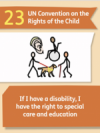Golftyn Primary School Asthma Policy
Introduction and background
Golftyn school recognises that asthma is a widespread, serious but controllable condition affecting many pupils at the school. The school positively welcomes all pupils with asthma. Our school encourages pupils with asthma to achieve their potential in all aspects of school life by having a clear policy that is understood by school staff, their employers (the local authority) and pupils. Supply teachers and new staff are also made aware of the policy. Staff who come into contact with pupils with asthma are provided with training as part of their first aid qualification.
Asthma medicines
It is the parent’s responsibility to ensure that they inform the school of their child’s asthma and any changes in their condition.
Immediate access to reliever medicines is essential. Pupils with asthma are encouraged to carry their reliever inhaler as soon as the parent, doctor or nurse and class teacher agree they are mature enough.
It is the parent’s responsibility to ensure their child has their inhaler with them in their school bag daily and ensure expiry dates of all inhalers are checked.
Parents are asked to provide the school with a labelled spare reliever inhaler. The class teacher will hold this separately in their classroom in case the pupil’s own inhaler runs out, or is lost or forgotten. All inhalers must be labelled with the child’s name by the parent.
It is the parent’s responsibility to ensure that their child has their inhaler with them for school trips, residentials etc.
School will purchase and hold a master inhaler which can be used in an emergency. This will be stored in the Headteacher’s office along with emergency use guidelines. The Emergency Asthma Inhaler kit expiry date will be checked by our First Aiders at the start of every school year.
School staff are not required to administer asthma medicines to pupils (except in an emergency), however many of the staff at this school are happy to do this. School staff who agree to administer medicines are insured by the local education authority when acting in agreement with this policy. All school staff will let pupils take their own medicines when they need to under the direction of the Senior Management Team.
Record keeping
At the beginning of each school year or when a child joins the school, parents are asked if their child has any medical conditions including asthma on their enrolment form.
All parents of children with asthma are consequently sent an Asthma UK school asthma card to complete. Parents are asked to return them to the school. The cards are kept in the Headteacher’s office and a copy in the class information box which moves up with the pupil. Parents are also asked to update or exchange the card for a new one if their child’s medicines or how much they take changes during the year.
PE, games and activities
Taking part in sports, games and activities is an essential part of school life for all pupils. All teachers know which children in their class have asthma and all teachers at the school are aware of which pupils have asthma from the school’s medical register.
Pupils with asthma are encouraged to participate fully in all PE lessons. If a pupil needs to use their inhaler during a lesson they will be encouraged to do so.
Out-of-hours sport
There has been a large emphasis in recent years on increasing the number of children and young people involved in exercise and sport in and outside of school. The health benefits of exercise are well documented and this is also true for children and young people with asthma. It is therefore important that the school involve pupils with asthma as much as possible in after school clubs.
Asthma attacks
All staff who come into contact with pupils with asthma know what to do in the event of an asthma attack (see advice below).
Asthma attacks: action to take
The school follows the following procedure which is appropriately displayed in school:
- Ensure that the reliever inhaler is taken immediately
- Stay calm and reassure the child
- Help the child to breathe by ensuring tight clothing is loosened
- If the child is in extreme distress, call an ambulance.
Emergency procedure/Severe attacks
A severe attack is defined as:
- The inhaler has no effect after five to ten minutes;
- The child is distressed or unable to talk;
- The child is becoming exhausted;
- The child shows signs of rapid deterioration;
- There is any doubt at all about the child’s condition;
CALL AN AMBULANCE!
Repeat the reliever inhaler every few minutes until help arrives. If a child is in severe distress, or experiences any loss of consciousness, call an ambulance immediately.


